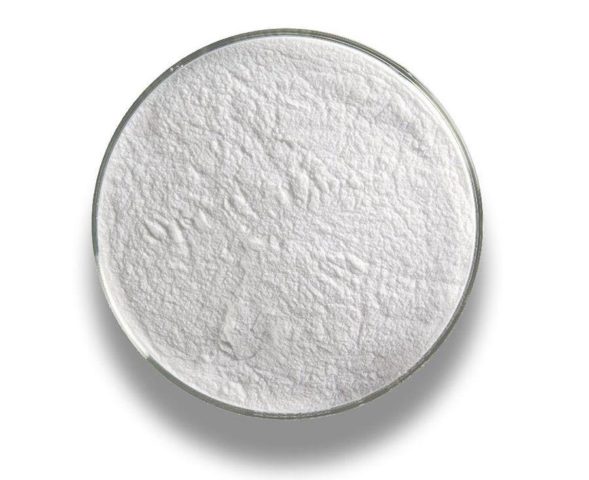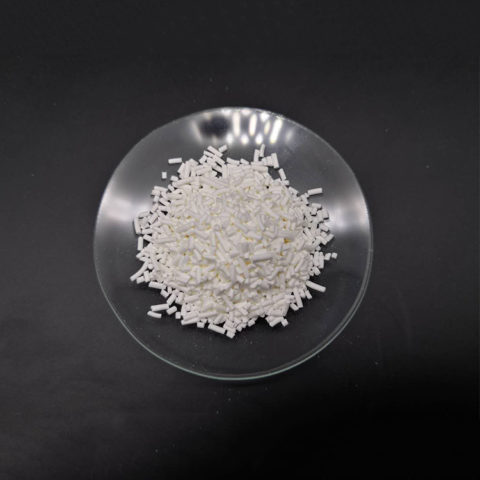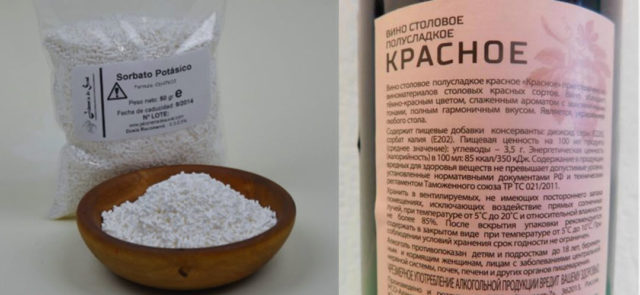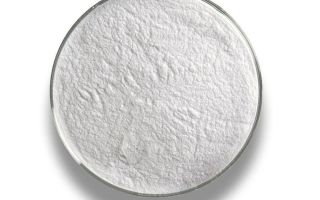Content
In the food industry, you cannot do without the use of various additives. They give food a pleasant taste and aroma, while extending the shelf life. The list of such substances includes the potassium salt of sorbic acid. It is considered a powerful preservative that inhibits the growth of bacteria and fungi. The benefits and harms of potassium sorbate are what every consumer should know.
What is the additive E202
Potassium sorbate or food additive E202 is considered to be a frequently used component in the manufacture of various dishes. This substance has unique properties, but low cost.
The potassium salt of sorbic acid is produced in powder form. Granules can be either small or large with a whitish tint. There is no smell, but after use, a bitter taste remains in the mouth. The substance is well compatible with water and alcohol.
The product is of synthetic origin. But sorbin salt is present in the bones and juice of rowan. This component helps to neutralize potassium hydroxide.
The main advantage of potassium sorbate is that it is resistant to external influences. It tolerates temperature fluctuations with ease. E202 has a pronounced antimicrobial effect. It prevents the development of bacteria and fungi.

What is the preservative made of potassium sorbate (E202)
Salt preservative E202 is produced in the form of a white powder. Has white granules of different sizes. The component is obtained during chemical synthesis as a result of the interaction of sorbic acid and potassium hydroxide.
The benefits and harms of potassium sorbate
Most countries use this additive in the manufacture of various products. Manufacturers claim that potassium sorbate has no negative impact on human health. After numerous studies, it was found that the substance occasionally causes allergic reactions, is not toxic, does not lead to gene mutations.
Experts share the same opinion and believe that the E202 supplement is even beneficial to the body to some extent. When applied, potassium sorbate has an antibacterial effect. It normalizes the state of the intestinal microflora, kills bacteria and fungi, thereby improving the functioning of internal organs.
But E202 can also be harmful if taken in large quantities. Sorbic acid can enter into various reactions. For example, if you consume a lot of vitamin C, then benzene is formed. The resulting substance can disrupt the work of mitochondrial DNA. This process leads to serious illness.
At the present time, there are disputes between scientists about the effect of potassium sorbate. Some of them say that taking the supplement contributes to the development of hyperactivity in children.
E202 food additive is dangerous or not
If the buyer has met potassium sorbate in the composition, do not worry. Experts say that E202 additive is not hazardous to health and belongs to safe food components. But the benefits and absence of harm are observed only if the person does not abuse harmful products.
The body perceives a food additive as a type of fatty acid. Therefore, it completely breaks down and assimilates it. Potassium sorbate is not deposited anywhere, which is a significant plus.

Only a sensitive organism can react to a supplement as an allergen. Then the person will have unpleasant symptoms in the form of rashes on the skin, itching, redness. In the rarest cases, small ulcers appear on the mucous membranes of the mouth. Then it is better to seek the help of a nutritionist to find the right diet.
The danger of a preservative lies in the alteration of the DNA structure. This does not happen in all cases, but only when the substance interacts with ascorbic acid, iron salts. During such processes, the formation of carcinogens occurs. With frequent use, the development of malignant tumors is observed.
The supplement is not advised to be consumed by people with chronic diseases of the digestive tract and kidneys, as well as women at the stage of bearing a child. If it is impossible to completely abandon the preservative, then you need to at least reduce its use.
Potassium sorbate application
Potassium salt is added to almost all foods. It is used to extend the shelf life, to add flavor to the product. In addition, the component can be found in the composition of cosmetics. This helps prevent spoilage by bacteria and fungi.
Although E202 is considered a safe preservative, it should be consumed in moderation. There are certain norms. The composition of margarine and butter should include no more than 0.12 kg of a component per 0.1 ton of product. Mayonnaise, ketchup and mustard can contain from 0.1 to 0.2 kg per 0.1 ton of product.
The food additive includes confectionery, smoked meat and sausages, canned food, preserves, jams, butter creams. But the norm should not exceed 0.2 kg per 0.1 ton of product. There is a preservative in non-alcoholic carbonated and non-carbonated drinks. The dosage per 0.1 ton is normally 0.04-0.06 kg.
No more than 0.06 kg per 0.1 ton of product is added to the composition of vegetable and fruit purees for children.

Potassium sorbate in cosmetics
Cosmetics are considered a favorable breeding ground for various harmful bacteria and fungi. This is due to the fact that most of them are stored in the bathroom, where there is always high humidity and sudden changes in temperature. To make the cosmetics last longer, preservatives are added to it.
Potassium sorbate is found in shampoo and shower gels. This substance gives the products a moisturizing and emollient effect. The additive is recognized as hypoallergenic, therefore it is often added to creams for sensitive skin and around the eyes.
Potassium sorbate can be found in toothpastes. Then the product acquires a homogeneous and thick consistency. No bubbles form in the paste. When pressed on the tube, it is evenly distributed on the brush.
Application of potassium sorbate in the food industry
Often, a sorbic acid derivative is added to various products. This substance is called a preservative for a reason. With its help, it is possible to prevent the development of fermentation and putrefactive processes. It prevents the activity of bacteria and fungi.
Potassium sorbate is added to milk, cheese and cottage cheese. This way the food does not spoil for a long time.
E202 preservative is found in dried fruits, confectionery and flour products, sausages and frankfurters. The additive is added when preparing sauces and mayonnaises, mushroom and vegetable pickles. Potassium sorbate is found in sodas, juices and mineral water.
E202 preservative is found in fish and meat, which is sold canned. Potassium sorbate is added to dumplings, dumplings and cutlets.
We should also highlight the addition of a food additive to wine products. Drinks are produced using a special technology. Raw grapes must go through a fermentation process along with sugar. As a result, yeast appears. A quality drink will not work without them. In order to suspend this process in time, as well as to give the wine a richer taste, preservative E202 is added.

Often, when studying the label, parents notice that potassium sorbate is present in baby food. They are worried if this is harmful to the development of the baby - manufacturers and scientists argue that the food supplement is not dangerous for the health of the baby, therefore, it is possible to eat foods containing it in moderation. This component is added to vegetable and fruit purees, as well as dairy products. This allows you to extend the shelf life and maintain the quality of the product.
Is potassium sorbate possible for pregnant women
Most expectant mothers are concerned not only with their health, but also with their fetus. The use of harmful products contributes to the development of various diseases and defects even before birth.
In large quantities, the additive will adversely affect the health of the expectant mother. This can lead to uterine bleeding, miscarriage, or premature birth. It is worst if potassium sorbate affects the development of the child. There may be pathologies of the digestive tract. If the concentration of the preservative is higher than 0.005 kg per 1 kg of weight, then everything can end in death for a person.
Conclusion
The benefits and harms of potassium sorbate are still being studied by scientists, nutritionists and manufacturers. The additive is not included in the list of prohibited substances, it is considered harmless. The sorbic acid derivative is added to products to extend the shelf life, prevent the development of fermentation and putrefactive processes. The preservative is also found in cosmetics - toothpastes, shampoos, creams and lotions. It only rarely causes allergic reactions. Allowed for infants and older children. There is no harm only if the dosage of potassium sorbate does not exceed the norm. Otherwise, problems with the kidneys, liver and intestines occur.

